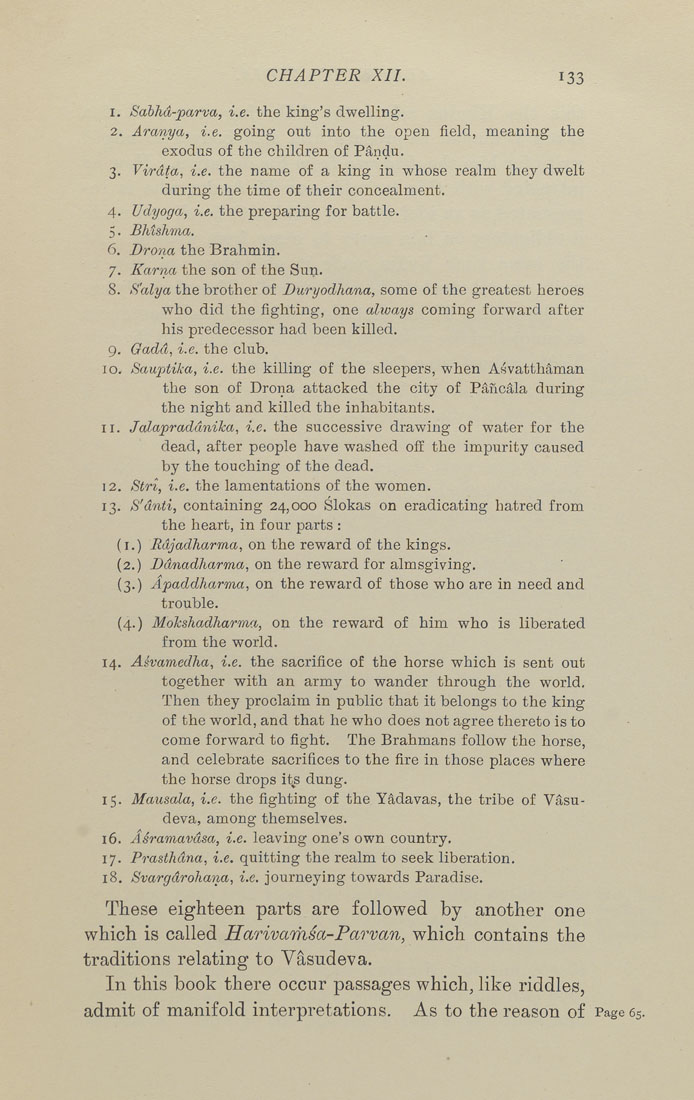Bīrūnī, Muḥammad ibn Aḥmad, Alberuni's India (v. 1)
(London : Kegan Paul, Trench, Trübner & Co., 1910.)
|
||
|
|
|
|
| Page 133 |

CHAPTER XII. 133 1. Sabhd-parva, i.e. the king's dwelling. 2. Aranya, i.e. going out into the open field, meaning the exodus of the children of Pandu. 3. Virdta, i.e. the name of a king in whose realm thej'" dwelt during the time of their concealment. 4. Udyoga, i.e. the preparing for battle. 5. BMshma. 6. Drona the Brahmin. 7. Karna the son of the Sun. 8. S'alya the brother of Duryodhana, some of the greatest heroes who did the fighting, one always coming forward after his predecessor had been killed. 9. Gadd, i.e. the club. 10. Sauptika, i.e. the killing of the sleepers, when Asvatthaman the son of Drona attacked the city of Paiicala during the night and killed the inhabitants. 11. Jalapraddnika, i.e. the successive drawing of water for the dead, after people have washed off the impurity caused by the touching of the dead. 12. Stri, i.e. the lamentations of the women. 13. S'dnti, containing 24,000 Slokas on eradicating hatred from the heart, in four parts : (i.) lidjadharma, on the reward of the kings. (2.) Bdnadharma, on the reward for almsgiving. (3.) Apaddharma, on the reward of those who are in need and trouble. (4.) Mokshadharma, on the reward of him who is liberated from the world. 14. Aivamedha, i.e. the sacrifice of the horse which is sent out together with an army to wander through the world. Then they proclaim in public that it belongs to the king of the world, and that he who does not agree thereto is to come forward to fight. The Brahmans follow the horse, and celebrate sacrifices to the fire in those places where the horse drops its dung. 15. Mausala, i.e. the fighting of the Y^davas, the tribe of Vasu¬ deva, among themselves. 16. Asramavdsa, i.e. leaving one's own country. 17. Prasthdna, i.e. quitting the realm to seek liberation. 18. Svargdrohana, i.e. journeying towards Paradise. These eighteen parts are followed by another one which is called Harivamsa-Parvan, which contains the traditions relating to Vasudeva, In this book there occur passages which, like riddles, admit of manifold interpretations. As to the reason of Page 65. |
| Page 133 |







